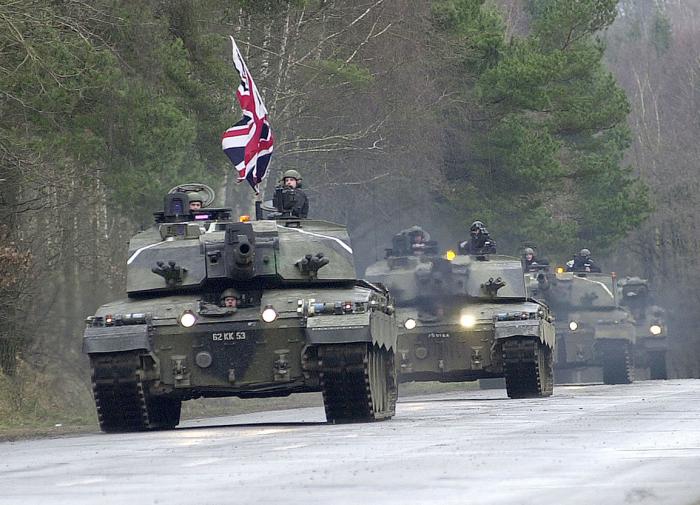London prepares plan for NATO forces to enter Ukraine. The hour is near
London initiated a plan to introduce a NATO contingent to the right bank of the Dnieper, as well as to the border with Belarus in order to free up Ukraine forces to confront Russia.

The UK came up with an idea to secretly transfer large and highly manoeuvrable NATO forces to Ukraine to occupy positions on the right bank of the Dnieper and on the border with Belarus.
An anonymous "knowledgeable source” informed that troops from Finland, Sweden, Romania and Poland could be involved in the operation. The goal is to "free up” forces in Ukraine for their subsequent redirection to the zone of the special military operation. Authors of the plan believe that this will create an advantage for the Armed Forces of Ukraine, and Moscow will eventually be forced to start negotiations on Kyiv's terms.
With the help of the Armed Forces of Ukraine, it is also planned:
- to establish a no-fly zone over Kyiv-held territories;
- to attack Transnistria;
- to attack strategic infrastructure facilities in Russia's northern regions.
British strategists intend to prepare such a scenario by May 2024. The plan will be put into effect against the backdrop of a significant weakening of positions of the Armed Forces of Ukraine and Russia's successful offensive deeper into the territory of Ukraine, the source noted.
That's not news
On December 15, former Ukrainian Ambassador to the UK Vadim Prystaiko announced a similar plan.
Some countries consider sending their military forces to Ukraine, and "the UK is first on that list," he said. According to Prystaiko, Great Britain will send troops to Ukraine in the event of a "catastrophic development of the war.”
Let us also recall what former NATO chief Anders Rasmussen said in July. Individual NATO member states may consider stationing troops in Ukraine if other members or the alliance as a whole do not provide significant security guarantees to Kyiv, Rasmussen said. Poland can be such a country, he said.
NATO Expeditionary Force ready
British Minister for European Affairs Leo Docherty paid a visit to Poland on January 31. The visit was not incidental at all. It is Poland that stations British troops as part of a multinational NATO group. There are eight such groups in total on the border with Russia. This is a ready-made and well-coordinated expeditionary force.
In Poland, the UK cooperates with Croatia and Romania. Docherty visited the squadron based at the Bemowo Piskie base in Orzysz where 150 British troops serve.
The hour is near
The plan could be used, since the authority of the United States and NATO in the world depends on the outcome of the military conflict in Ukraine. The West has acquired its assets in the country — primarily black soil. Ukraine is getting all of its aid as loans, and Kyiv will have to pay them back.
As Ukraine is running out of soldiers, the only way to "change the rules of the game” for Kyiv is to directly engage NATO forces. Until recently, NATO has been providing Ukraine with arms, intelligence, logistics and command support.
The following speaks against the implementation of the plan:
- The deployment of the official military contingent of NATO countries in Ukraine will mean a declaration of war on Russia.
- London and other capitals of the "brave” may turn into a nuclear wasteland 15 minutes after the troops occupy the right bank of the Dnieper.
- If the West really wanted (or could) to inflict a strategic defeat on Russia, it would have deployed its contingent in Ukraine even before the start of the special military operation, Yet, there are no NATO troops and NATO support for Ukraine has been declining steadily.
This suggests that the West does not want Ukraine to win for security reasons (Russia is a strong nuclear power), and there is a consensus on this issue among Western politicians.
The military may develop a variety of plans. They may even plan to deploy a NATO contingent on the Moon (to counter Russia's threat there too), but it is policy makers who give it the go-ahead.
Subscribe to Pravda.Ru Telegram channel, Facebook, RSS!


